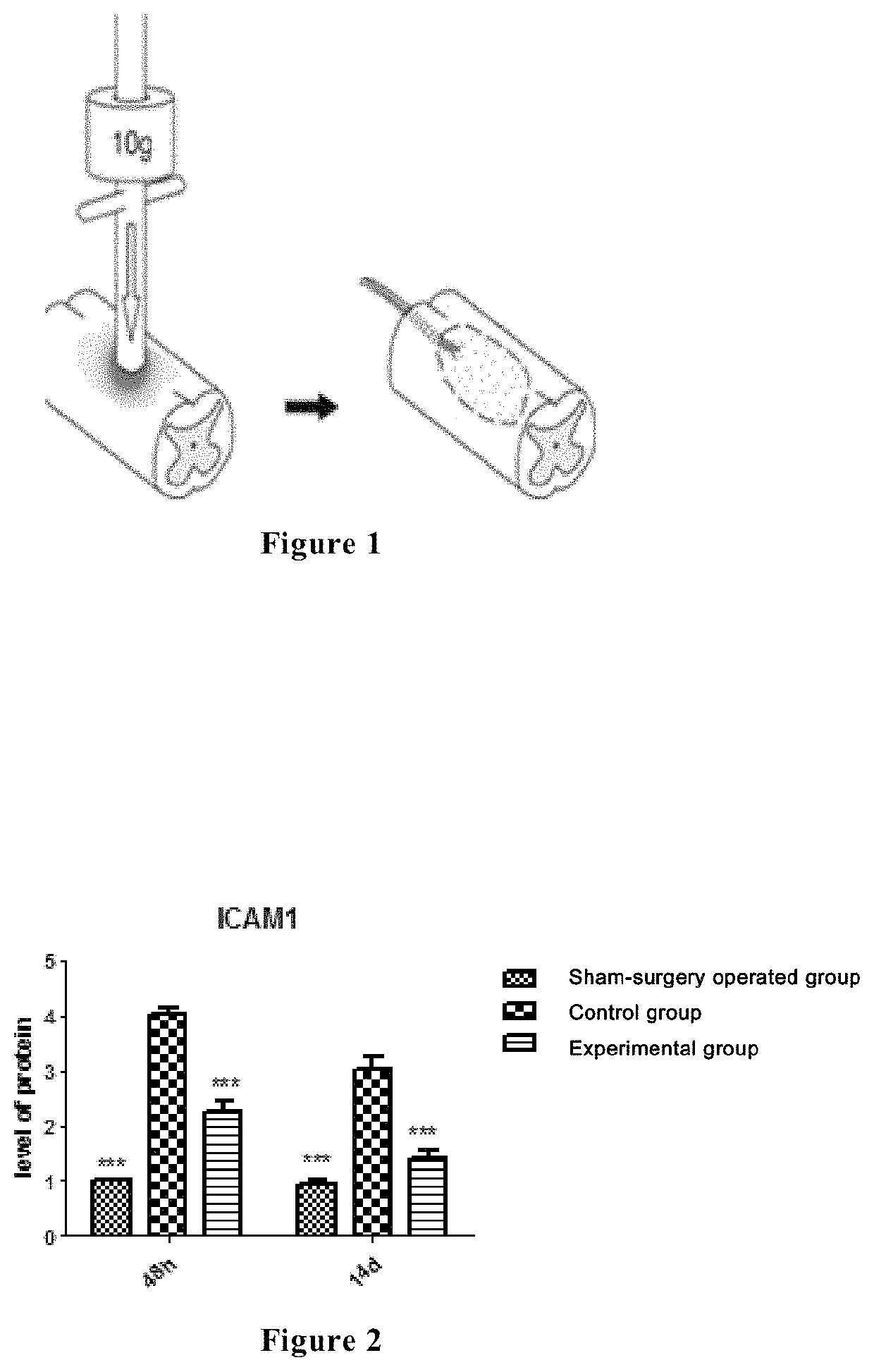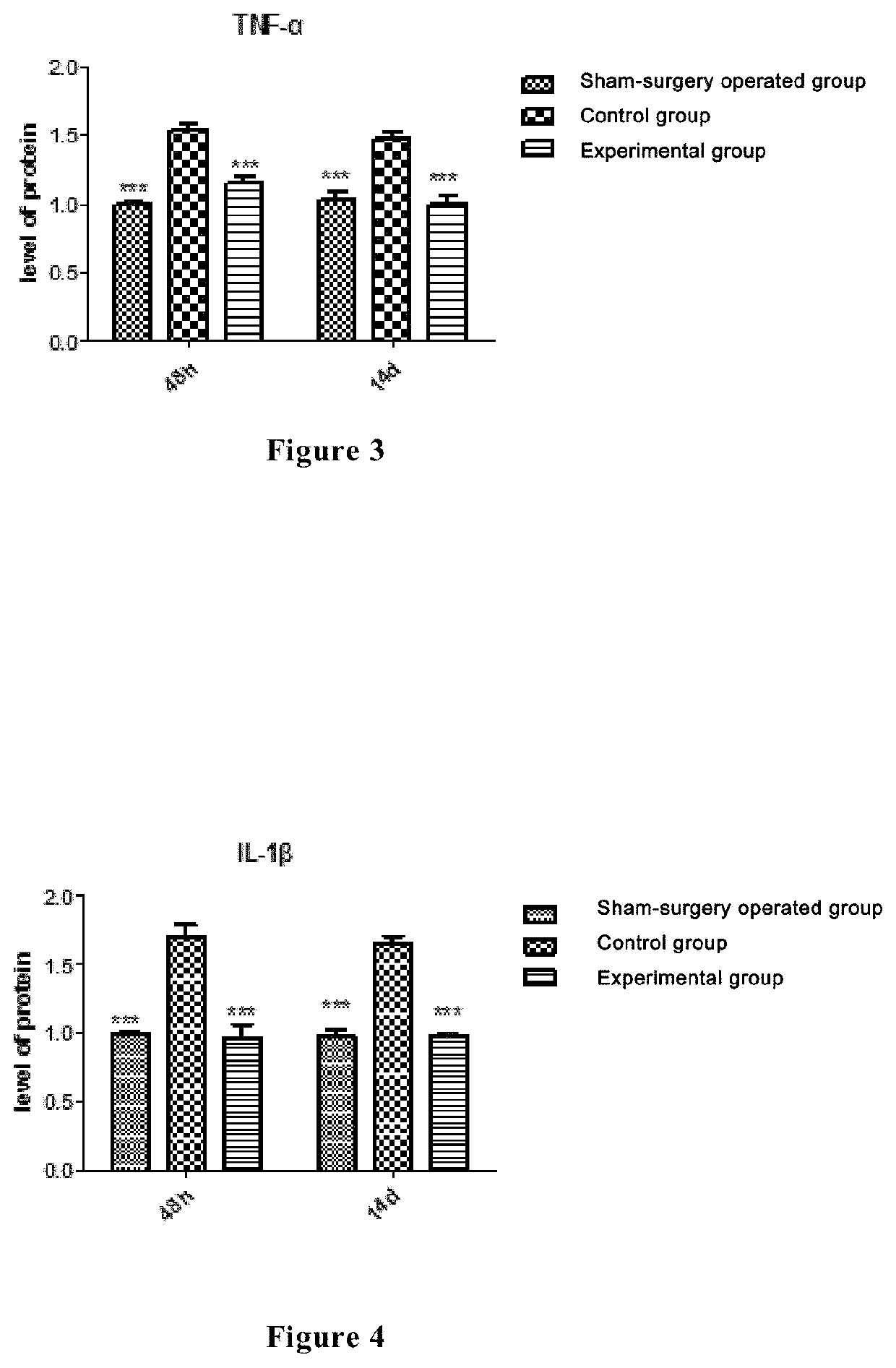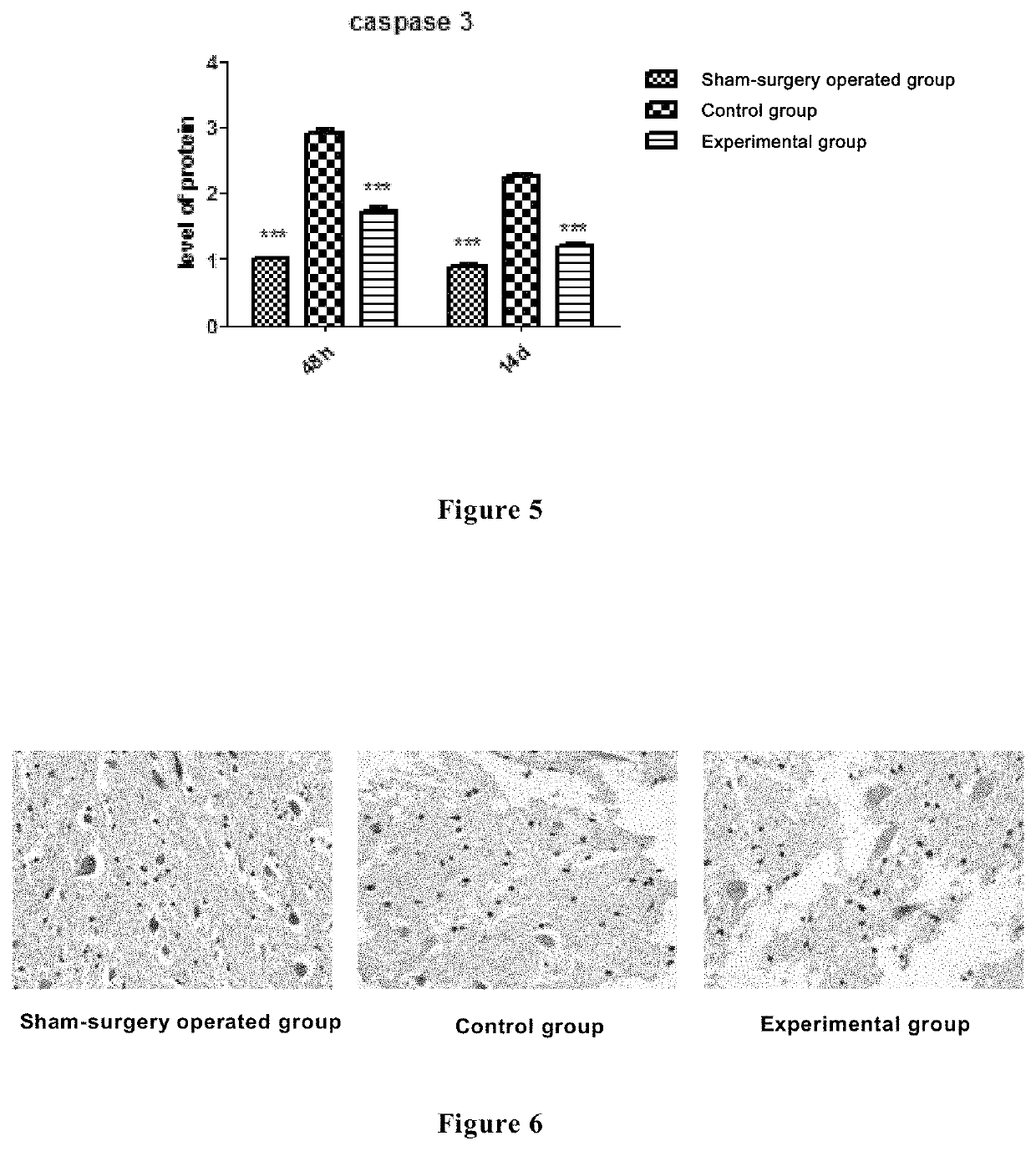Use of a compound in repairing nerve injury
a nerve injury and compound technology, applied in the field of medical technology, can solve the problems of less than 1% patients, difficult to repair the injury, high incidence and high disability rate, etc., and achieve the effects of promoting neuron survival, reducing the apoptosis level of neurons, and reducing the production of pro-inflammatory cytokines
- Summary
- Abstract
- Description
- Claims
- Application Information
AI Technical Summary
Benefits of technology
Problems solved by technology
Method used
Image
Examples
example 1
ment of Spinal Cord Injury Animal Model of Rats
[0039]Animal models of acute spinal cord injury experiment were established by using an IMPACTOR MODEL-II spinal cord injury striking system. Sixty female Wistar rats with the age from 8 to 10 weeks and the weight from 230 to 250 g were divided into three groups with 20 rats in each group: a sham-surgery operated group, a control group (spinal cord injury group) and an experimental group, respectively. At 15 minutes before striking injury, the rats in the experimental group were injected with the compound of the formula (I) at a dose of 15 mg / kg body weight. After the rats were anaesthetized, they were surgically resected with the 10th thoracic vertebral lamina, and the corresponding spinal cord segment was exposed and fixed under a striking device, wherein the weight of the striking device had a striking strength of 10 g and a diameter of 2.5 mm, and dropped from a height of 25 mm (10 g×25 mm) (as shown in FIG. 1). After being striking...
example 2
f Compound of the Formula (I) on Inflammation at Spinal Cord Injury Sites
[0040]At 6 hours, 24 hours, 48 hours, 7 days, 14 days, and 28 days after injury, respectively, the rat spinal cord tissues were sampled for the Western Blot test, so as to test the inhibiting function of the compound of the formula (I) against the pro-inflammatory cytokines at the spinal cord injury sites.
[0041]1. ICAM1 Expression
[0042]Through Western Blot analysis, it has been found that at 48 hours after injury, the ICAM1 of the control group was highly expressed as compared to that of the sham-surgery operated group. However, when the compound of the formula (I) was employed to intervene, the ICAM1 expression of the experimental group was significantly decreased. Through gray level analysis, it was found that the relative expression quantity of the ICAM1 of the experimental group was significantly reduced as compared to the control group (see FIG. 2).
[0043]Through Western Blot analysis, it has been found tha...
example 3
f Compound of the Formula (I) on Cell Apoptosis after Spinal Cord Injury
[0051]At 6 hours, 24 hours, 48 hours, 7 days, 14 days, 28 days and 56 days after injury, respectively, the rat spinal cord tissues were sampled for the Western Blot test and TUNEL staining, so as to test the inhibiting function of the compound of the formula (I) against the cell apoptosis at the spinal cord injury sites.
[0052]1. Caspase 3 Expression
[0053]Through Western Blot analysis, it has been found that at 48 hours after injury, the Caspase 3 of the control group was highly expressed as compared to that of sham-surgery operated group, whereas the Caspase 3 expression of the experimental group was significantly decreased. Through gray level analysis, it was found that the relative expression quantity of the Caspase 3 of the experimental group was reduced as compared to that of the control group (see FIG. 5).
[0054]Through Western Blot analysis, it has been found that at 2 weeks after injury, the Caspase 3 of t...
PUM
| Property | Measurement | Unit |
|---|---|---|
| weight | aaaaa | aaaaa |
| weight | aaaaa | aaaaa |
| height | aaaaa | aaaaa |
Abstract
Description
Claims
Application Information
 Login to View More
Login to View More - R&D
- Intellectual Property
- Life Sciences
- Materials
- Tech Scout
- Unparalleled Data Quality
- Higher Quality Content
- 60% Fewer Hallucinations
Browse by: Latest US Patents, China's latest patents, Technical Efficacy Thesaurus, Application Domain, Technology Topic, Popular Technical Reports.
© 2025 PatSnap. All rights reserved.Legal|Privacy policy|Modern Slavery Act Transparency Statement|Sitemap|About US| Contact US: help@patsnap.com



